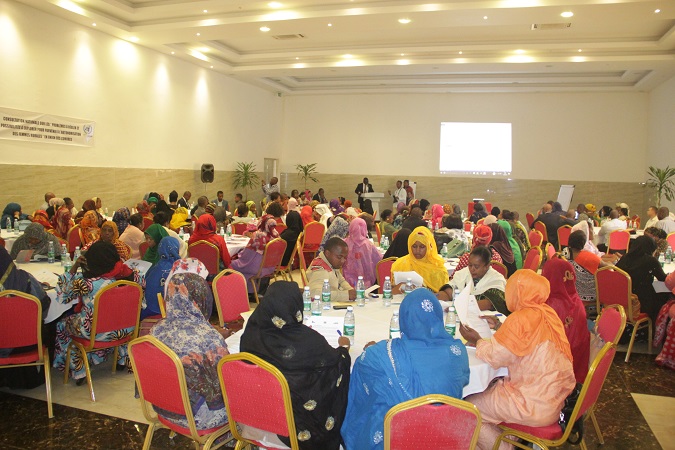PRE CSW 62 CONSULTATIONS IN COMOROS
Challenges and opportunities in achieving gender equality and the empowerment of rural women and girls".Date:

The 62nd session of the Commission on the Status of Women (CSW62) convened more than 150 Comorian women on February 15 at Moroni, the capital of Comoros. This was the first time a meeting of this caliber was held in the country, bringing together representatives from across the country in various areas including government, national and international stakeholders.
The aim of this pre CSW consultation was to identify the priorities of the rural Comorian women and to come up with a common and shared vision to consolidate a document on the status of women in Comoros to be presented at CSW62. "This meeting is a real opportunity for all of you to freely express your opinions, priorities and vision so that they will be shared at the highest international level", said UN Resident Coordinator, Matthias Naab.
Also in attendance was UN Women Africa’s Regional Director Izeduwa Derex-Briggs who in her remarks acknowldeged that Comoros has educated and dynamic women who can carry their voice higher and further. Thus they should speak on behalf of the entire African continent.
"This national consultation remains necessary, I was going to say mandatory! We do not have the right to make mistakes, so we need to have a common and shared vision". Dr. Rashid Mohamed Mbaraka Fatma The Minister of Health in charge of Gender Promotion, who will be the flag bearer of Comoros and Africa in New York next March for CSW62.
"A common women's platform in Africa, which transcends all its differences and brings together all women regardless of age or religion, is therefore necessary", said the UN Women's Regional Director who insisted on having "One voice to say the evils faced by African women".